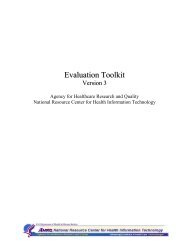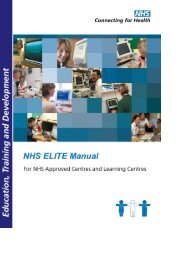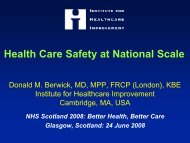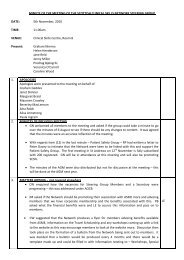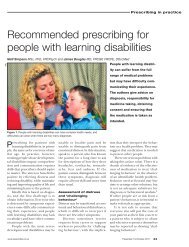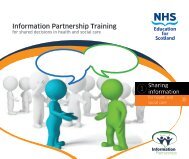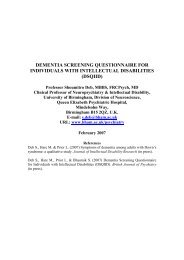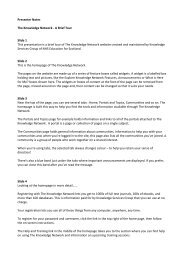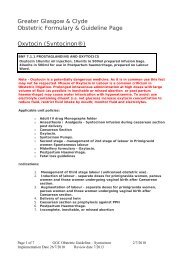The Fife Dementia Strategy: 2010 â 2020 - The Knowledge Network
The Fife Dementia Strategy: 2010 â 2020 - The Knowledge Network
The Fife Dementia Strategy: 2010 â 2020 - The Knowledge Network
Create successful ePaper yourself
Turn your PDF publications into a flip-book with our unique Google optimized e-Paper software.
example, many services provided for people with learning disabilities may be<br />
useful for people with dementia, including developing small circles of care with<br />
volunteers in the local community. Rehabilitation and reablement are also<br />
possible features of short break services. <strong>Fife</strong> Council and NHS <strong>Fife</strong> must<br />
work in partnership with independent providers to explore and develop a<br />
spectrum of such models of care which can be stepped up or stepped down<br />
based on the individual needs of service users.<br />
In order to provide proper care, activities and programmes must be built<br />
around the individual. Activities completed in day and overnight care must be<br />
suitable and stimulating for all service users, including people with dementia,<br />
and satisfy their social, cultural, religious and recreational interests and needs.<br />
Research has shown that activities that centre around the person’s normal<br />
daily life and events, such as preparing a meal, and visiting a local shop or a<br />
familiar sight, improves the service users quality of life, affecting mortality,<br />
depression, physical function and behavioural symptoms for people with<br />
dementia, and improving self esteem and sense of identity 48 .<br />
Much like the case highlighted in the recent report Remember, I’m Still Me 49 ,<br />
activities for people on short breaks are centred on those completed indoors<br />
and in groups. People have an expectation and a right to meaningful activity<br />
which is an integral part of their care and not an ‘optional extra’ 50 . All service<br />
users are to be given a role in selecting and planning activities where<br />
appropriate, and are supported to take part in activities outside of their normal<br />
care environment to encourage activity and engagement in the local<br />
community.<br />
All short break services will be supported by an activities coordinator who has<br />
specific knowledge and training on activities for people with dementia. Short<br />
break services and the activities employed within them will focus on reabling<br />
and developing service users wherever possible, and maintaining skills and<br />
functionality.<br />
We don’t plan anything, we discuss things and we have ideas. As for us<br />
putting it in a diary… that might not work…it depends on staff, it depends<br />
on transport, it depends on the clients ourselves because we change our<br />
minds… we all compromise… we can do things this way because of the<br />
small group. (Service user with dementia)<br />
Well, sometimes you come in [to respite] and you sit and look at one<br />
another… I need something more, I need to be occupied, I’ve always been<br />
wanting to be occupied and even though I am sitting in this [wheelchair] I<br />
still feel I can do it. (Service User)<br />
48 SIGN 86 (2006).<br />
49 Care Commission & Mental Welfare Commission for Scotland (2009). Remember, I’m Still<br />
Me<br />
50 Ibid<br />
65




